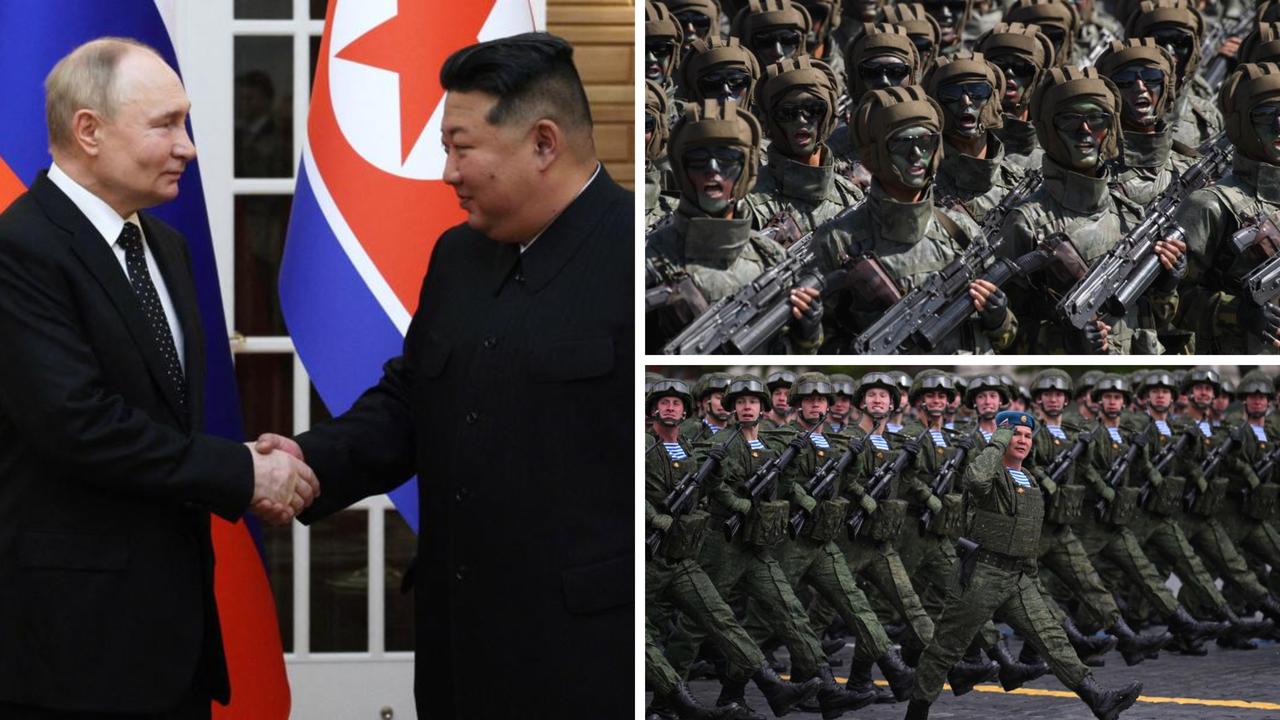US spies detect North Korea is making new missiles in satellite images
US spy satellites have detected a new move from within North Korea that has sparked fears about Kim Jong-un’s commitment to denuclearisation.
US spy satellites have detected a new move from within North Korea that has sparked fears about Kim Jong-un’s commitment to denuclearisation.
New evidence from satellite photos taken in the last few weeks has revealed there is renewed activity at the North Korean factory that produced the country’s first intercontinental ballistic missiles capable of reaching the United States.
A senior US official has said that the photos and infrared imaging indicate vehicles moving in and out of the facility at Sanumdong on the outskirts of Pyongyang.
But they do not show how advanced any missile construction might be, the official told Reuters on condition of anonymity because the intelligence is classified.
New evidence, supported by Planet satellite imagery taken on July 7, shows that work on advanced weapons is continuing at a large research facility in Sanumdong, North Korea: https://t.co/rD45K78zcK pic.twitter.com/FMFBdWIVWM
— Planet (@planetlabs) July 30, 2018
The Washington Post reported that North Korea appeared to be building one or two new liquid-fuelled intercontinental ballistic missiles at the large research facility on the outskirts of Pyongyang, citing unidentified officials familiar with intelligence reporting.
According to the US official who spoke to Reuters, one photo showed a truck and covered trailer similar to those the North has used to move its ICBMs. Since the trailer was covered, it was not possible to know what, if anything, it was carrying.
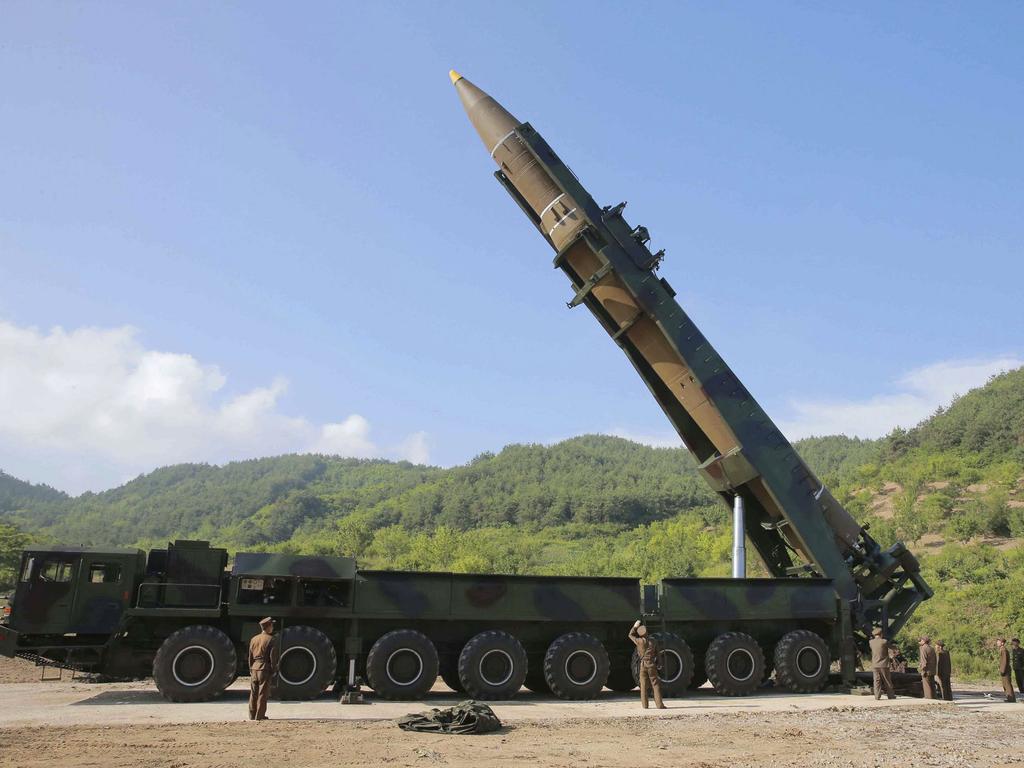
The evidence obtained this month is the latest to suggest ongoing activity in North Korea’s nuclear and missile facilities despite talks with the United States and a June summit between North Korean leader Kim Jong-un and US President Donald Trump.
Trump declared soon afterward that North Korea no longer posed a nuclear threat.
Kim committed in a broad summit statement to work toward denuclearisation, but Pyongyang has offered no details as to how it might go about that and subsequent talks have not gone smoothly.
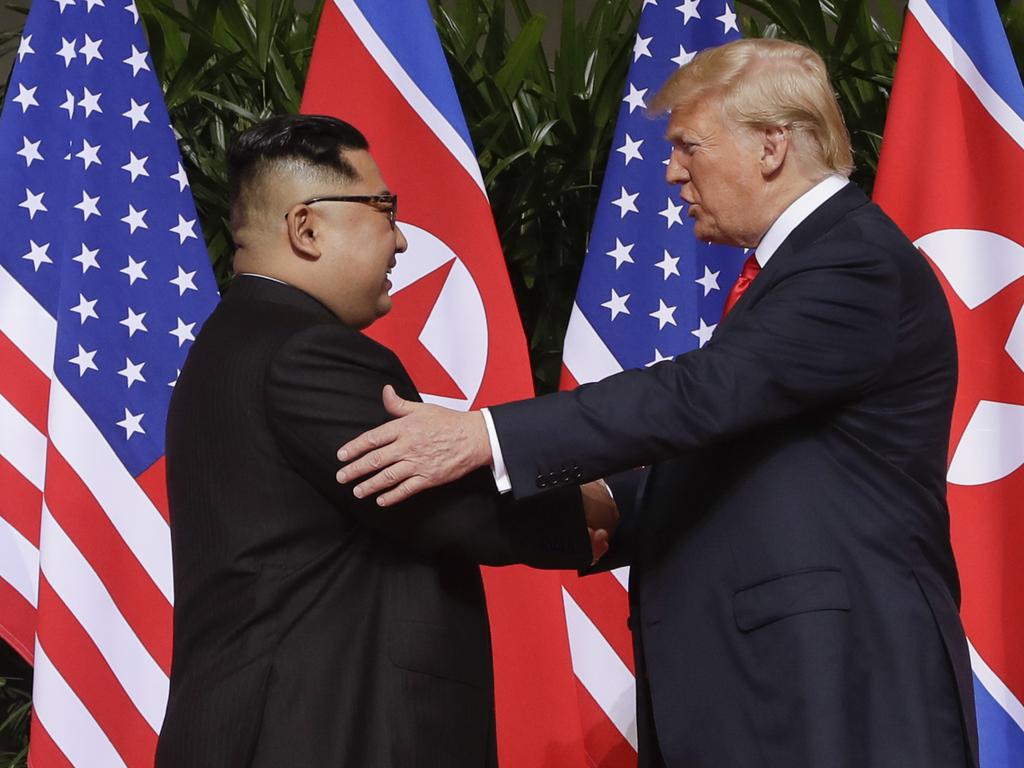
The development comes after Kim appeared to be keeping his word with satellite imagery assessed by North Korean think-tank 38 appearing to show the dismantling of his nuclear and ballistic missile program.
The satellite photos showed that, over a three-day period, the Sohae facility’s rail-mounted missile transfer and processing facility was being pulled apart. So far, however, key fuel bunkers and the main gantry launch tower remain intact.
But a separate Vertical Engine Test Stand appears to be much further along the demolition process. Shelters had been razed, older fuel bunkers broken up and the missile stand’s steel framework removed.
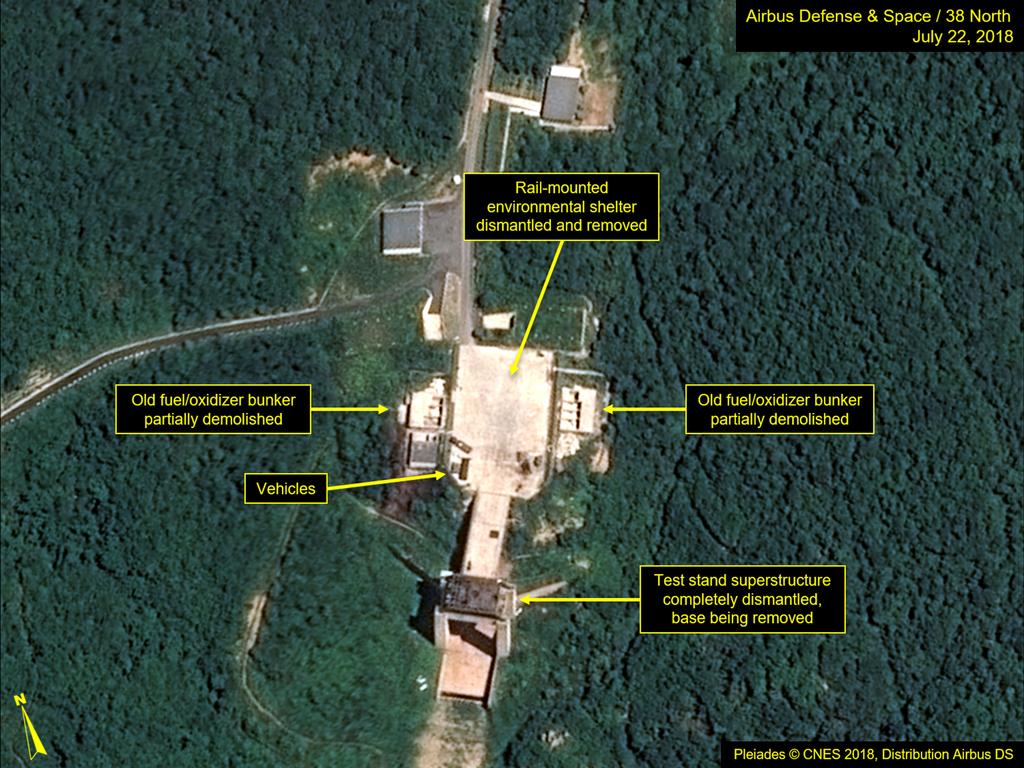
But the process was not entirely complete: 38 North said newer fuel bunkers and the launch pad’s concrete foundations remain untouched.
A US defence official, however, told AFP that the Pentagon was not closely tracking activities at Sohae in terms of how it relates to the denuclearisation of North Korea.
“It’s not on the radar, so to speak,” the official said.
Trump said he was “very happy” with how talks were progressing with North Korea, as observers and the media highlight the lack of concrete results one month after his summit with Kim Jong Un.
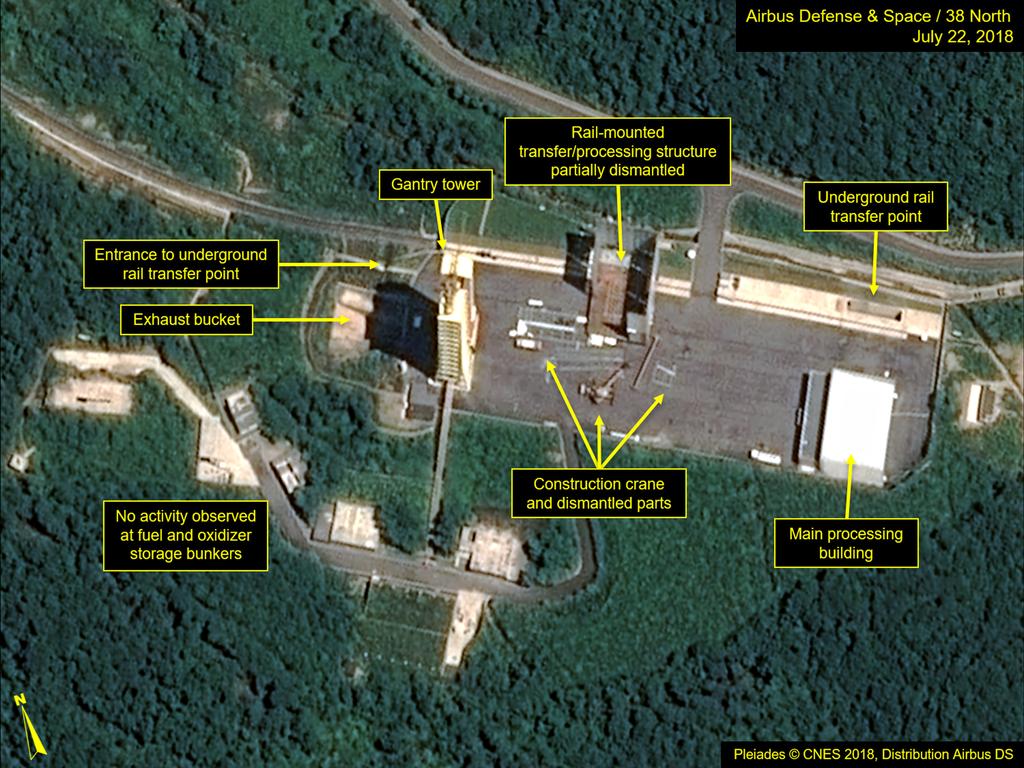
“A Rocket has not been launched by North Korea in 9 months. Likewise, no Nuclear Tests. Japan is happy, all of Asia is happy,” Trump tweeted earlier this month.
But it has not been the first time US intelligence clashed with the president’s optimism. In late June, US officials told US media outlets that intelligence agencies believed North Korea had increased production of fuel for nuclear weapons and that it did not intend to fully give up its nuclear arsenal.
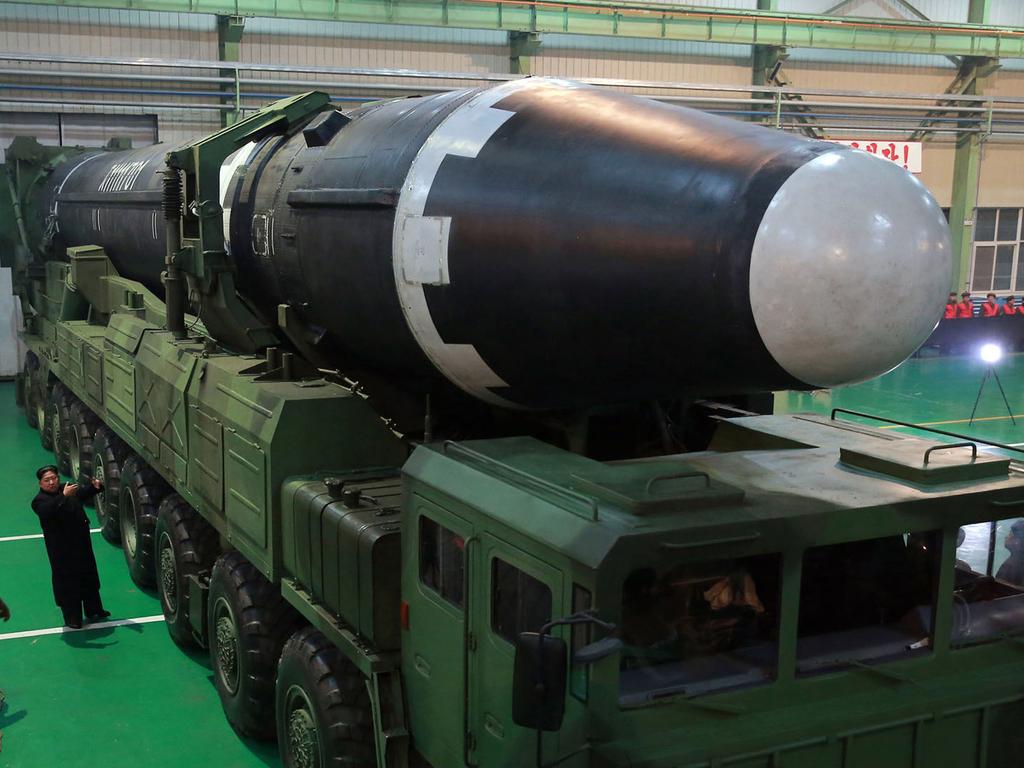
US Secretary of State Mike Pompeo told the US Senate Foreign Relations Committee last week that North Korea was continuing to produce fuel for nuclear bombs despite its pledge to denuclearise. But he insisted the Trump administration was still making progress in its talks with Pyongyang.
The Sanumdong factory produced two Hwasong-15 ICBMs, North Korea’s longest-range missiles, but the US official noted that Pyongyang still had not tested a reliable re-entry vehicle capable of surviving a high-velocity trip through the Earth’s atmosphere and delivering a nuclear warhead.
The White House did not immediately respond to a request for comment.



